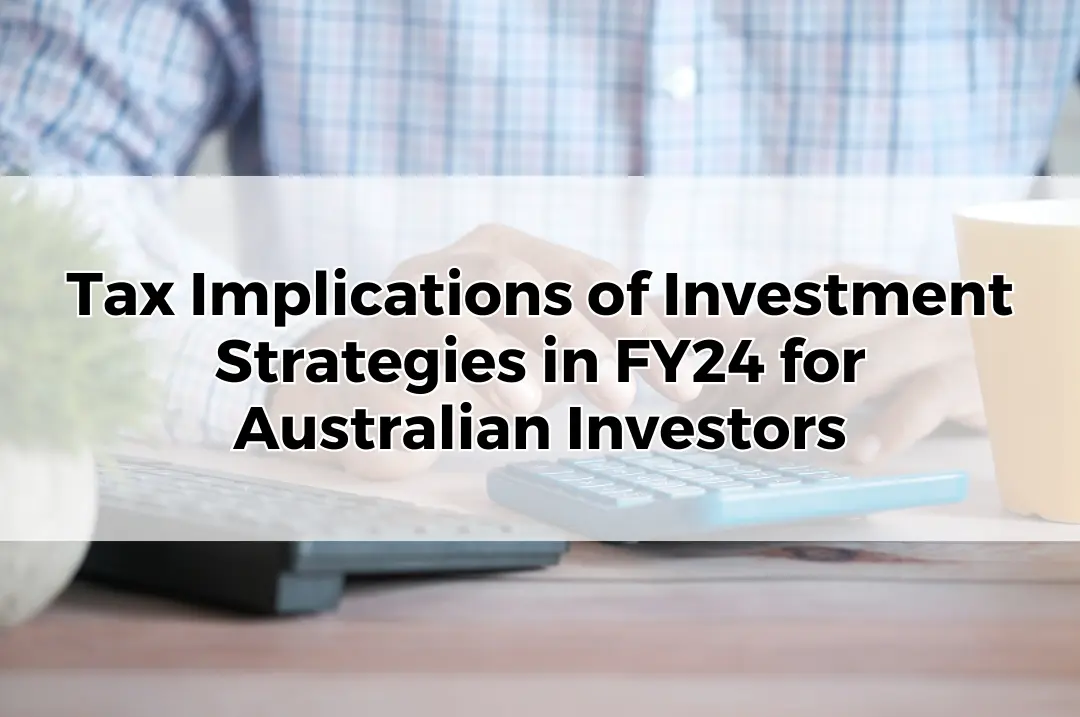As we approach financial year 2024 (FY24), Australian investors are faced with new challenges and opportunities in the tax realm. Navigating these complexities is crucial for anyone looking to optimise their investment returns while minimising tax liabilities. This blog post provides a comprehensive guide to understanding the tax implications of various investment strategies within the Australian context for FY24.
FY24 Tax Law Changes Affecting Investments
The new financial year brings with it updates to tax legislation that could significantly impact investment decisions. For instance, adjustments in the tax treatment of dividends and the introduction of new incentives for green energy investments reflect the shifting priorities of the Australian government. Investors need to stay abreast of these changes to harness potential benefits and avoid pitfalls.
Tax-Efficient Investment Strategies
Maximising tax efficiency is a key goal for any savvy investor. In Australia, making use of tax-advantaged accounts such as superannuation can provide substantial benefits. Contributions to super are taxed at a concessional rate of 15%, significantly lower than most personal tax rates. Additionally, investing in exchange-traded funds (ETFs) and managed funds can be advantageous, as these vehicles typically offer lower turnover and more favorable capital gains tax treatment compared to direct stock investments.
Capital Gains Tax (CGT) Considerations
Understanding the rules governing capital gains tax is essential for Australian investors. FY24 continues to encourage the strategic selling of assets with the application of the CGT discount, which allows individuals to reduce their taxable gains by 50% if the asset is held for more than 12 months. Strategic planning around the timing of asset sales and careful selection can help minimize CGT liabilities.
Superannuation and Its Tax Advantages
Superannuation remains one of the most tax-effective investment vehicles in Australia. Not only do contributions and fund earnings benefit from lower tax rates, but strategic withdrawals can also be optimised for tax efficiency. For instance, after reaching the preservation age and retiring, individuals can start drawing tax-free pension income from their super fund. Understanding these elements can significantly enhance the tax effectiveness of retirement savings.
Future-Proofing Your Investments Against Tax Changes
Long-term investment success requires adapting to potential future tax changes. This means regularly reviewing and adjusting your investment and tax strategies in consultation with financial advisors. Awareness of potential reforms in tax policy and proactive adjustments to your investment approach can safeguard your assets from future tax liabilities.
Conclusion
For Australian investors in FY24, effective tax planning is integral to successful investment. By understanding the latest tax legislation changes, utilising tax-efficient investment strategies, and planning for the long term, investors can achieve better financial outcomes. Keeping informed and seeking professional advice where necessary are crucial steps in navigating the complexities of investment tax implications in Australia.

